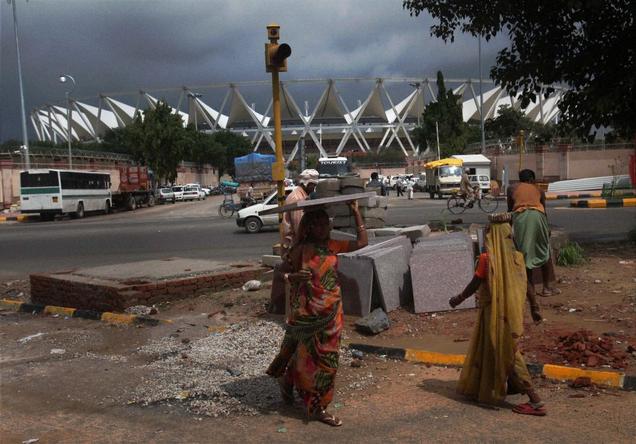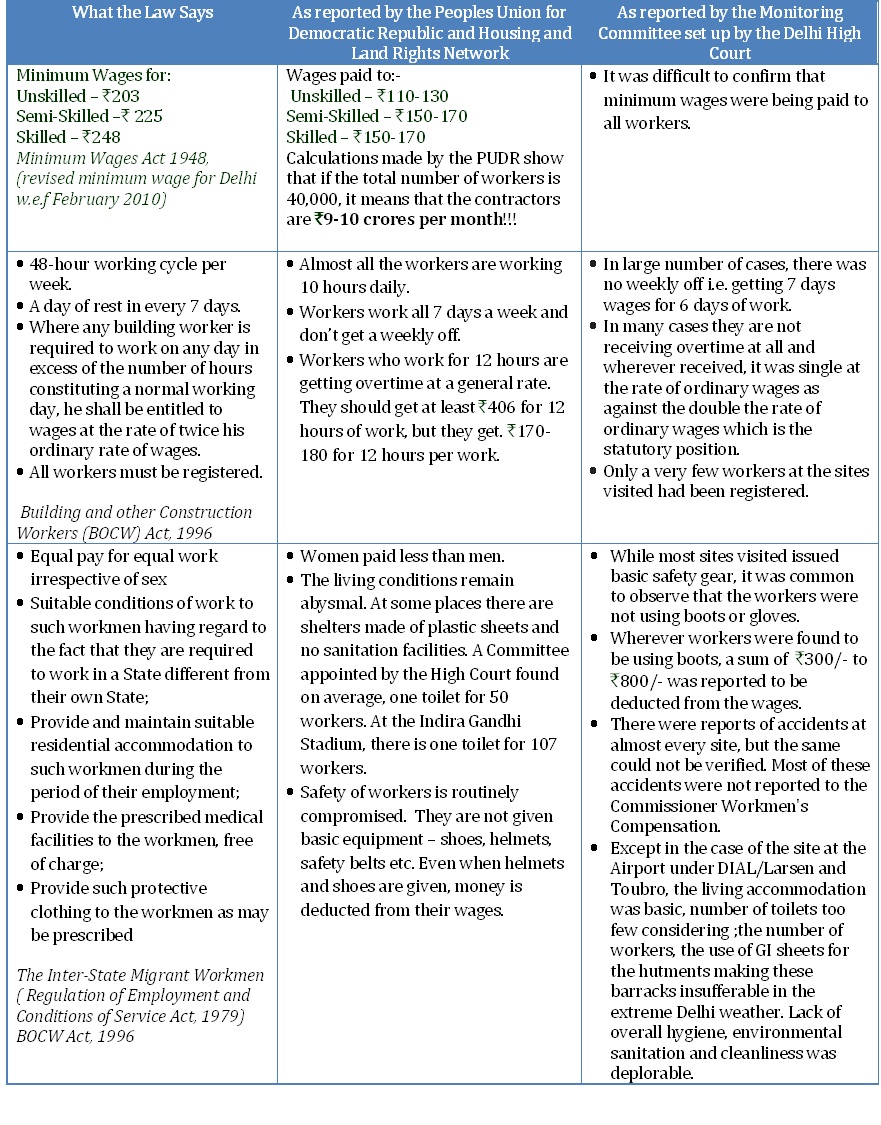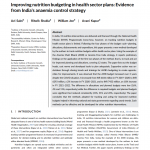
Taking the “Common Man” out of the Commonwealth Games
20 September 2010

(Image copyright, The Hindu)
Avani Kapur
No, this is not another blog about Commonwealth Games (CWG) bashing. I think we have had enough of those, and with the media talking about it nearly every day, I think Delhites are a bit tired (at least I am!!). This is instead meant as homage to the faceless people who have sacrificed everything – from their home, livelihood, to even their lives and those who have travelled thousands of kilometres and worked relentlessly through the rain in trying to get Delhi “ready” for the games and to save “our national pride”.
Anyone who has crossed Jawaharlal Nehru Stadium (JNS) late at night would have seen labourers hard at work, precariously balanced high on top of the stadium buildings, without any safety equipment. On the 26th of August, one such worker died in an accident – the death went unreported. And this is just one of many. According to an affidavit submitted by the Delhi Metro authorities, 109 people have died in the construction sites of the Delhi Metro Rail Corporation and 45 people have died working for the CWG directly.
In January 2010, Peoples Union for Democratic Rights ( PUDR) along with two other organizations filed a Public Interest Litigation in the High Court (HC). The Court appointed a four member Monitoring Committee to look into the matter. In March 2010, the Monitoring Committee came out with its report, where it concluded that the “allegations made by the petitioners are well founded.”
The table below highlights some of the violations as reported by both the PUDR as well as the Monitoring Committee report. For more details on each of these reports please see here and here.

However, despite the HC order on the 7th of April, according to the PUDR no mechanism has been devised to ensure that the recommendations of the Committee are taken into account and worker rights continue to be violated. And to make matters worse, this is not the first time that Courts have intervened for the rights of workers working on game sites. Nearly 2 decades ago, the Supreme Court in People’s Union for Democratic Rights vs. Union of India [1982 SCC (3) 235], popularly known as the Asiad case, had castigated the government for the pitiable condition of workers engaged in construction work and in a landmark judgment the SC had stated, “The poor too have civil and political rights and rule of law is meant for them also, though today it exists only on paper and not in reality.” It had further stated, “… where a person is made to work for less than the minimum wages, it would be considered forced labour as required by Article 23.”
Apart from the gross violations of the rights of workers, the CWG has also had a devastating effect on the rights, livelihoods and housing of numerous slum dwellers. A study undertaken by the Housing and Land Rights Network highlights the significant long-term negative social and economic impact in Delhi due to the CWG. The report states that more than 3 lakh slum dwellers have been evicted in Delhi since 2003 in the run-up to the games on the pretext of beautification drives and urban renewal. For instance, in June 2009, a slum cluster near a drain behind JNS was demolished by the MCD, which included over 50 people suffering from a high degree of disability that had been living in the slum since 1998-1999. This area is being “beautified” to make way for a parking lot for the CWG.
Similarly, with complete disregard of the UN Basic Principles and Guidelines on Development Based Evictions and Displacements, on December 24, 2009, a night shelter for the homeless at Pusa Road Roundabout was demolished, leaving 250 homeless without shelter in the bitter cold. Two homeless people died due to the cold.
In another incident, a slum cluster of 368 families of Dalit Tamil at Jangpura Barapullah Nullah was bulldozed on April 15, 2010 to construct a parking lot for the Games. Even with regard to children, a report released by the NGO, Child Rights and You (CRY), found that children of over 400,000 construction workers at the CWG sites are deprived of basic rights like sanitation, schooling and healthcare. And the list goes on and on…
This is by no means surprising for most of us. In fact, Delhi Chief Minister Sheila Dixit had acknowledged that, “We will have about 30 lakh homeless in the city after the Games.”(Outlook, April 2010). Yet, surprisingly, apart from the reports published by PUDR and HRNL, there is relatively very little outcry or even media attention given to these facts.
With less than 2 weeks left for the games, irrespective of how the events turn out –the next time we are stuck in our cars in a traffic jam, cursing the Games, the Delhi Government, the corrupt officials etc, lets spare a thought for those who have lost more than we can imagine to make OUR lives a little easier in the end.
Avani Kapur is Senior Research and Program Analyst at the Accountability Initiative.





